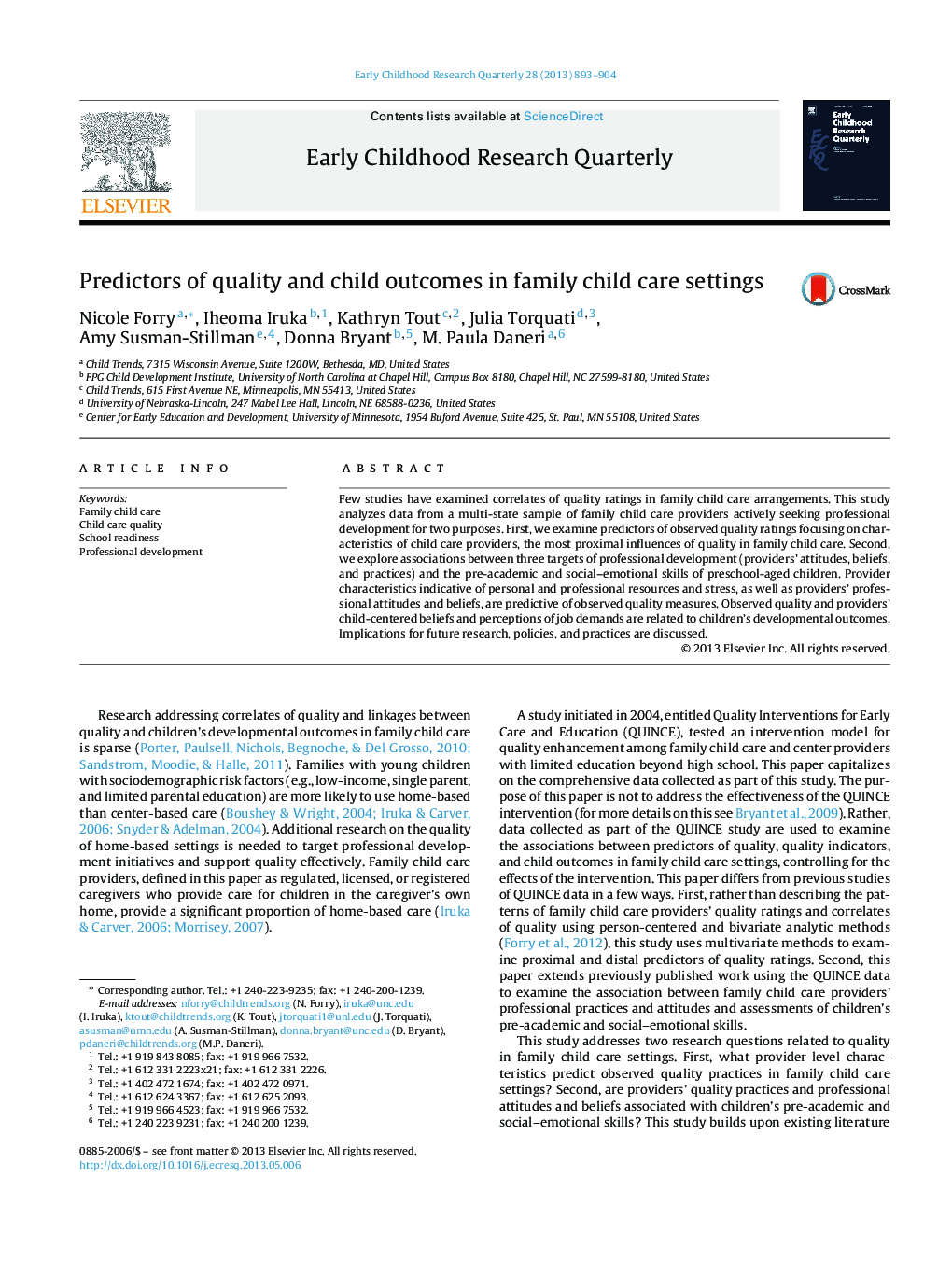| Article ID | Journal | Published Year | Pages | File Type |
|---|---|---|---|---|
| 353892 | Early Childhood Research Quarterly | 2013 | 12 Pages |
•This study examines predictors of process quality and child outcomes within family child care settings.•Provider characteristics indicative of personal and professional resources and stress, as well as providers’ professional attitudes and beliefs, were related to observed quality measures.•Observed quality and providers’ child-centered beliefs and perceptions of job demands were predictive of children's developmental outcomes.
Few studies have examined correlates of quality ratings in family child care arrangements. This study analyzes data from a multi-state sample of family child care providers actively seeking professional development for two purposes. First, we examine predictors of observed quality ratings focusing on characteristics of child care providers, the most proximal influences of quality in family child care. Second, we explore associations between three targets of professional development (providers’ attitudes, beliefs, and practices) and the pre-academic and social–emotional skills of preschool-aged children. Provider characteristics indicative of personal and professional resources and stress, as well as providers’ professional attitudes and beliefs, are predictive of observed quality measures. Observed quality and providers’ child-centered beliefs and perceptions of job demands are related to children's developmental outcomes. Implications for future research, policies, and practices are discussed.
